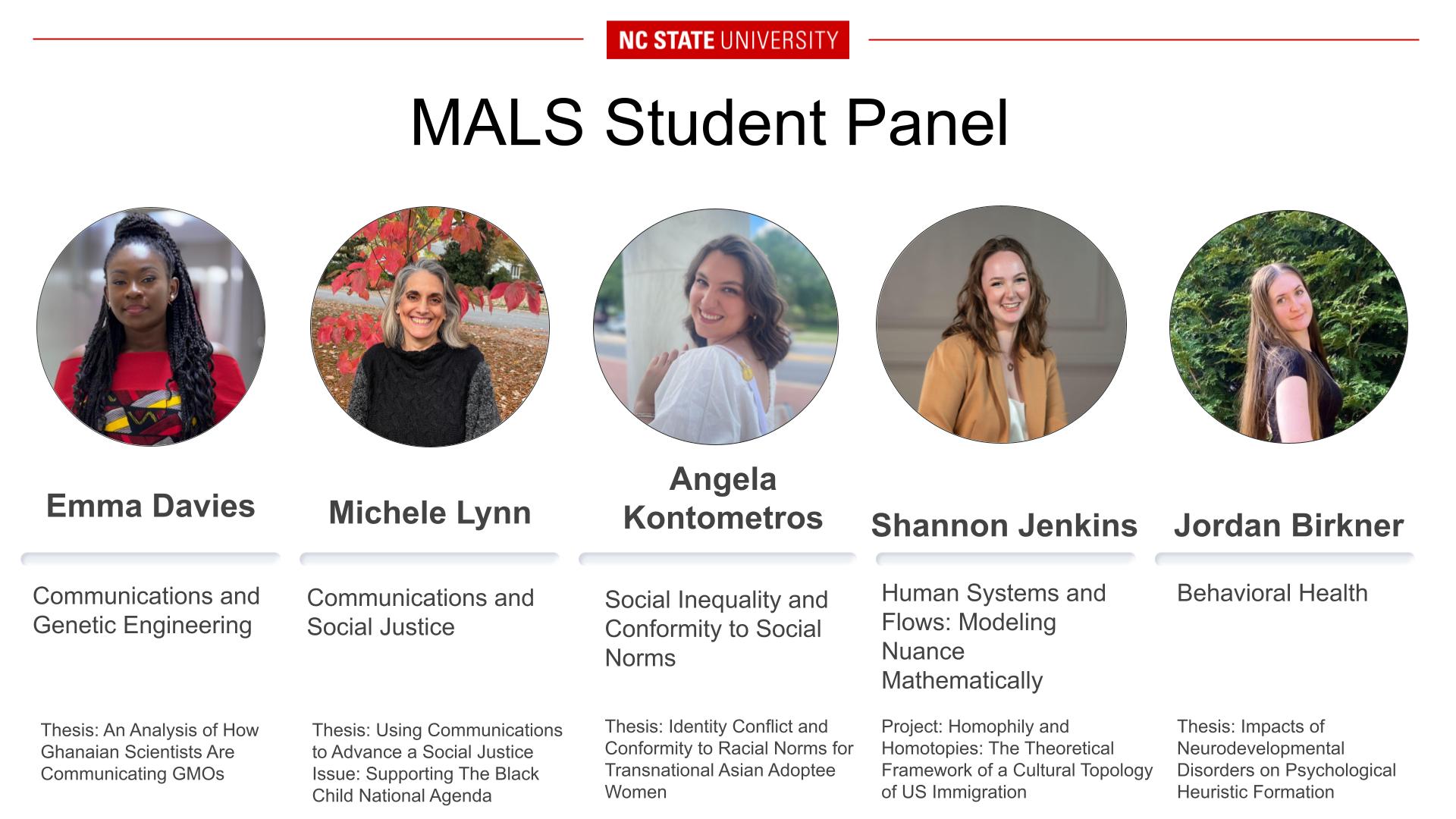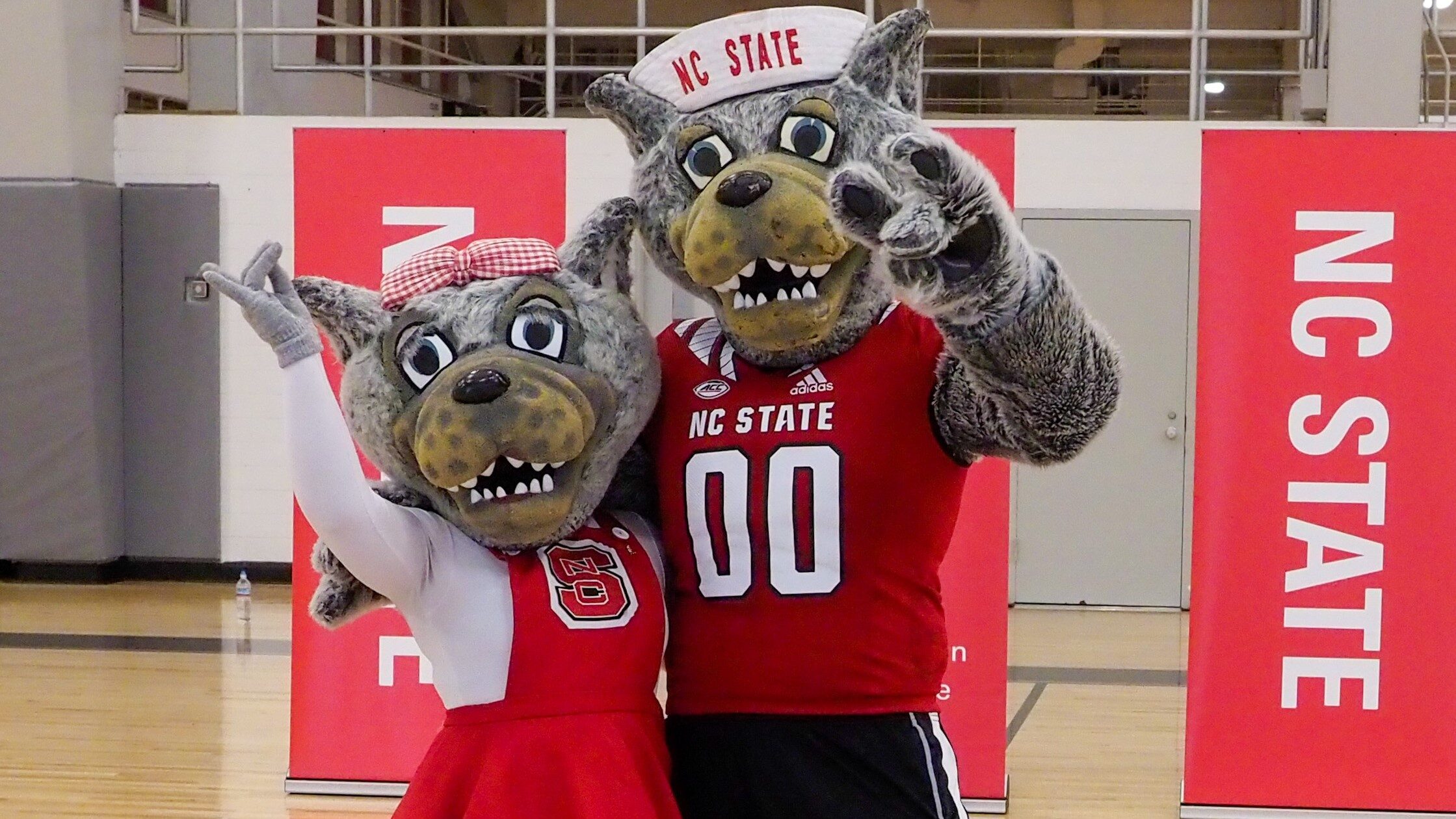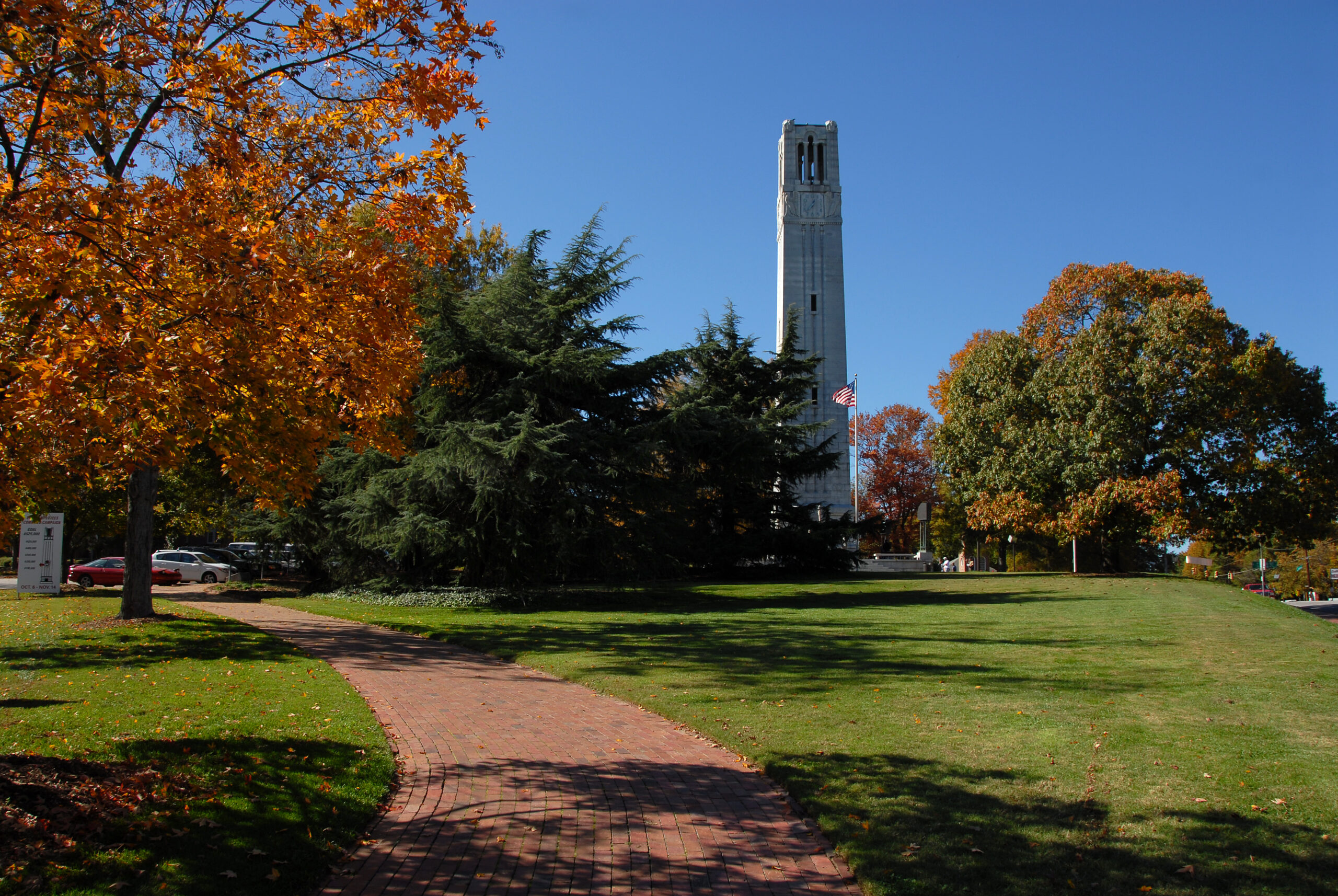MALS Student Spotlights: Lee Huddleston and Darryl Smith

Lee Huddleston, MALS ’21
Tell us about yourself! Where are you from? What brought you to NC State?
I grew up in the Raleigh area, moved around a bit for theater work starting in college, and then happened to move back to North Carolina around the time I started looking at grad schools. Several of the relatively small number of people working on the kinds of research questions I’m really interested in with regards to illicit markets and governmental corruption are at State, so I was particularly fortunate to find the program when I did.
What is your academic and/or professional background?
My background is in theater and bookselling — a semi-classical acting education in undergrad, six years of freelance costume construction and wardrobe work, and a children’s book specialty in independent bookstores. I’ve spent approximately equal amounts of time elbow-deep in stage blood and reassuring parents that comics will not damage their children’s reading skills. It’s allowed me to interact with people across a wide spectrum of industries and livelihoods on a daily basis, which has been an unexpected asset in studying political economy.
Why did you decide to apply to the MALS program? How do you feel MALS is a good fit for you?
Illicit political economy, which is my course concentration, straddles several fields, including political economy, international relations, public administration, criminal justice, sociology, and history. I looked at quite a few programs that would have required me to choose a single discipline before finding MALS. The opportunity to take classes and work with faculty in multiple areas of study has been invaluable.
When/Why did you become interested in your area of study/research? How will you apply interdisciplinarity in your academic and professional work?
Like a lot of people who make a living working with narratives, I like studying history, and I have since I was a kid. Somewhere in there it became clear that lots of things that aren’t theoretically criminal at all, like democratic governance and agricultural supply chains, often either brush up against illicit economies or wholly incorporate them. I got really interested in sorting out some of those connections and seeing where they might lead. Working in sectors where work can be precarious and wages are often low also helps draw your attention to some of the gaps between the stories we tell about how economic systems work and their lived realities. The interdisciplinary perspective is useful, and often necessary, in a field where some of the participants in the systems you’re interested in actively obfuscate their involvement. Exploring the ways that the same pieces of information fit together under different analytical lenses helps illuminate the connections among them, and it also helps you see the shape of what real-world data is missing, which is often just as useful. I’m glad to have the tools to take this approach. It’s a lot harder to address multifaceted issues like governmental corruption without them.
How will MALS enhance your professional experience?
I don’t know yet, but I look forward to finding out! For all that I study crime and corruption, the thing that pops up time and again in this research is that illicit markets aren’t separate entities from licit ones; they’re part and parcel of the economic and social systems we live in. I’m grateful to have had the opportunity to examine these systems in all their complexity and detail for the past two years, and I’m looking forward to engaging more deeply with policy questions with that background.
Darryl Smith, MALS ’21
Tell us about yourself! Where are you from? What brought you to NC State?
I am from Durham, NC. I came to NC State directly after undergrad to obtain a degree that highlights my passions for restorative justice.
What is your academic and/or professional background?
I graduated from North Carolina Central University majoring in criminal justice. I am a Family Engagement Specialist with FCR Head Start and Early Head Start. I’ve worked with this program for four years. My then 11-month-old son was enrolled in the program. I gained knowledge through training. Creativity was encouraged and appreciated in efforts to collaborate and serve families within the community.
Why did you decide to apply to the MALS program? How do you feel MALS is a good fit for you?
I decided to apply to the MALS Program after searching for graduate programs that would fit my overall educational drive. I wanted to be able to learn about different topics. The MALS program allowed me to design my degree. I felt that MALS was a great fit for me because I learned differently than others. The structure gave educational freedom to students to grow through learning within different disciplines.
When/Why did you become interested in your area of study/research? How will you apply interdisciplinarity in your academic and professional work?
I became interested in my study/research during my research on mental health in the criminal justice system during my senior year. I will apply interdisciplinarity to my academic and professional work by exploring topics that may be challenging but will be needed for understanding in the future. An interdisciplinary way of thinking is important as each person is different.
How will MALS enhance your professional experience?
As a professional, the MALS program has given me insight into the issues that different communities face. In my professional life, I use my experience to be a team player and analyze issues. My MALS experience will be applied as a stepping stone for improvement in my community and beyond.
Congratulations to the MALS 2021 Graduates! Drew Grantham, Elizabeth “Lee” Huddleston, and Darryl Smith!
- Categories:



